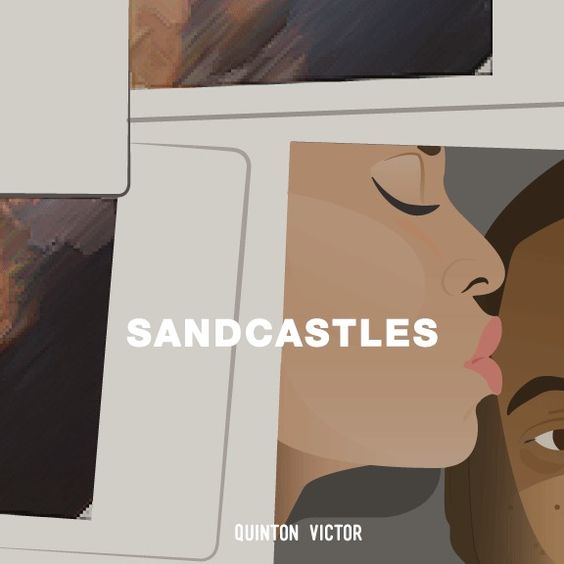Beyoncé Representation of Feminism in Her song Sandcastles
The term “patriarchy” has been used by feminists across the country to envelope the unfair prejudices men have been afforded both socially and in the work place. For centuries, men have been born into a system where they have a natural superiority in status and standard of treatment because it was established at one point that us men were to be tabulated as the primary gender. Thankfully, over the past century feminist movements have been spurred right and left in order to create an equality between the races and though efforts have seemed near futile at times, many feats have been accomplished such as the right to vote, educational rights, and the right to accessible birth control even.[1] Although these achievements have made life tremendously better for women across the globe, there is still a number of mountains to trek over before we reach real equality between genders.
Bell hooks has been a strong voice for the female community and continues to be though she has an unpopular opinion on the patriarchy represented in Beyoncé’s Lemonade. She almost seems to be taking on Beyoncé’s relationship in a non-humanistic approach when she speaks of feminism because she’s expecting an album that both shows her true reconciliation with Jay-Z as well as destroy the patriarchy. If this were the case for Beyoncé, she wouldn’t even be able to reconcile but be forced to spit in Jay-Z’s face and tell him he doesn’t deserve her anymore. Bell hooks postulates that, “No matter how hard women in relationships with patriarchal men work for change, forgive, and reconcile, men must do the work of inner and outer transformation if emotional violence against black females is to end. We see no hint of this in Lemonade.”[2] Although her first claim is highly agreeable, it is clearly evident that Jay-Z had to reconcile with himself and work on himself through the song “Sandcastles.” Through the example of Sandcastles from Beyoncé’s Lemonade and thoughts from other critics, we will examine bell hooks’ arguments against Beyoncé’s ideas of feminism and actions against the patriarchy.
This song was introduced by the word ‘Forgiveness’ flashed across the screen and speaks on the topic of birth, asking the viewer if they remember the cracking of their mother’s hip to create you and she seems to stay on this train throughout the song to communicate you must go through the pain in order to experience a sort of rebirth. She then vocalizes this to express Jay-Z’s pain in the third stanza of the song by saying, “And your heart is broken ‘cause I walked away / Show me your scars and I won’t walk away.”[3] This insinuates that when she was forgiving him, she wanted to reconcile with him, but only if she saw he was just as equally as invested and their relationship meant just as much to him as it did her. This is one of the ways Beyoncé expresses her definition of feminism when she keeps Jay-Z at the same level instead of bashing him continuously.

Throughout the “Sandcastles” visual we see scenes of pain and nurturing between Beyoncé and Jay-Z and she uses these scenes in order to create an equality between them as two parts to their relationship purposefully not to destroy the patriarchy. She uses the idea of rebirth to enforce this equality as our thoughts of birth circle ideas of newness and innocence. In the last scenes of her ‘Forgiveness’, we see Jay-Z and Beyoncé lying on a bed in the fetal position in order to communicate that like a baby in the womb, they both need the other’s nurturing love and support in order for things to work. Collier Meyerson would classify this as “precisely how Beyoncé tugged at the patriarchy in Lemonade. With her humanity and with the humanity of others… [she] forces the voice of black women’s experiences into the mainstream.”[4] Meyerson makes a point of this in order to challenge bell hook’s critique of Lemonade by telling bell hooks that this work of art still carried out its purpose and that it’s overcharging to think Beyoncé should “bring exploitation and domination to an end.”[5] But by using phrases like that bell hooks almost places feminism in a violent light. It insinuates that feminism is like a war and we must rebel and take over the elite class in order to restore order to her world. Her tone almost categorizes her as a hypocrite since it counteracts earlier accusations she made towards Beyoncé for demonstrating ‘violent acts’ in her visuals.
Further problems arise in bell hooks’ argument when she assumes Beyoncé’s “construction of feminism cannot be trusted [because] her vision of feminism does not call for an end to patriarchal domination.”[6] Trying to end ‘patriarchal domination’ in one act would be comparative to trying to convert all people into vegetarians in one day. It’s a subjective process where there is a scale of patriarchy rather than objective where someone either is patriarchally dominant or not. With each strong feminist movement, women gain more equality with men and Beyoncé’s role in this subjective scale is to empower women. Since the beginning of her career, with songs like Irreplaceable (2006) she empowered women in both lyric and visuals to stand up for themselves and to lead women to not only think but to believe they have equal power in their relationships.
Beyoncé should not have all of the pressure to be the heroine that saves women and put an end to the patriarchy but instead be praised for her efforts to empower women through her work while educating the public of struggles women, especially in the black community, are burdened with purely based on the way they were born.
(Word Count: 954)
[1] Maxwell, Zerlina. “23 Ways Feminists Have Made the World Better for Women.” Mic. April 22, 2014. Accessed March 21, 2017. https://mic.com/articles/87809/23-ways-feminists-have-made-the-world-better-for-women#.5AYpFQn5n.
[2] Hooks, Bell. “Moving Beyond Pain.” Bell hooks Institute. May 09, 2016. Accessed March 21, 2017. http://www.bellhooksinstitute.com/blog/2016/5/9/moving-beyond-pain.
[3] Beyoncé. YouTube. February 12, 2017. Accessed March 21, 2017. https://www.youtube.com/watch?v=RD38JT8rypY.
[4] Adelman, Lori, and Collier Meyerson. Feministing. May 2016. Accessed March 21, 2017. http://feministing.com/2016/05/11/a-feminist-roundtable-on-bell-hooks-beyonce-and-moving-beyond-pain/.
[5] Hooks, Bell. “Moving Beyond Pain.” Bell hooks Institute. May 09, 2016. Accessed March 21, 2017. http://www.bellhooksinstitute.com/blog/2016/5/9/moving-beyond-pain.
[6] Hooks, Bell. “Moving Beyond Pain.” Bell hooks Institute. May 09, 2016. Accessed March 21, 2017. http://www.bellhooksinstitute.com/blog/2016/5/9/moving-beyond-pain.

Hi Jon,
This was such an interesting argument to read! I thought this strength of this argument was your detailed analysis. You include how the lyrics and images all tie together to support your argument. Your evidence is also presented properly so that the reader understands the significance.
This is a really specific suggestion, but when you mention Collier Meyerson, you do not introduce who he is or why his argument matters. You could look more about the jumps in your thinking like this that make sense to you, but not might be logical for all of your readers.
One thing I encourage you to think about is if there are multiple songs in Lemonade that would enhance your argument against hooks’ claims.
Hey Jon!
I really enjoyed reading your post, partially because I really like this song, but mostly because of all the quotes you used from our readings in your post. By using many sources to quote and paraphrase from, I know that what I was reading was an actual representation of the various women you drew from and was not something made up. So great job with that! However, I would have liked to see you incorporate some of your own thoughts and analysis of these thoughts on Sandcastles, in relation to the positions of the other three women, and present us with a new insight that they didn’t provide us with. My question for you is, do you think that as feminism evolves, that maybe more women will begin to respond to Beyoncé’s choice to forgive Jay-Z in a more positive way?
Jon– As always, I enjoy your post. The idea of rebirth in Beyonce’s relationship with Jay-Z was fascinating. Additionally, your tone and language throughout the post is so unique. Keep being you.
I wish you incorporated more media into your post though. I would have liked to see more pictures to support your argument as you discussed the music video.
Your post did make me question whether or not Beyonce even considered patriarchy or ending feminism with her album, or in her lifetime. Is that possible? Ugh.
I really like the deconstruction of Bell Hooke’s argument in your post. Breaking down her argument one statement at a time and taking the time to analyze and rebuke the statements made your argument string and easy to follow. Something that would make your argument even stronger if you used clips of some of the things to talk about from the video in your post. But, overall, this was a well-written post.
Jon,
I think you did a great job with this post. I particularly agree with the argument you made that bell hooks demands a lot from Beyoncé. It’s hard to be candid about your relationship and topple the patriarchy, I also would argue that such realism is a form of feminism.
I would have liked to see more visual aids in this post, since Lemonade’s power comes largely from the video than the audio.
What do you think about Beyoncé acting as the voice of black women, rather than using her fame as a platform to promote more “real” women?
Pingback: tamoxifen
Pingback: free nude sex pussy games